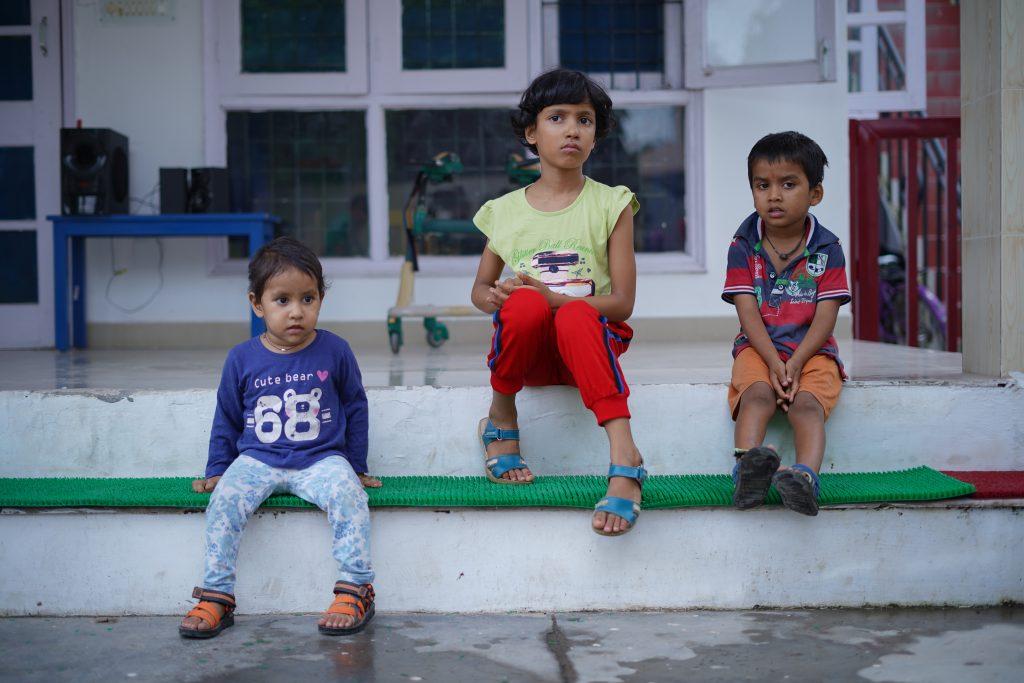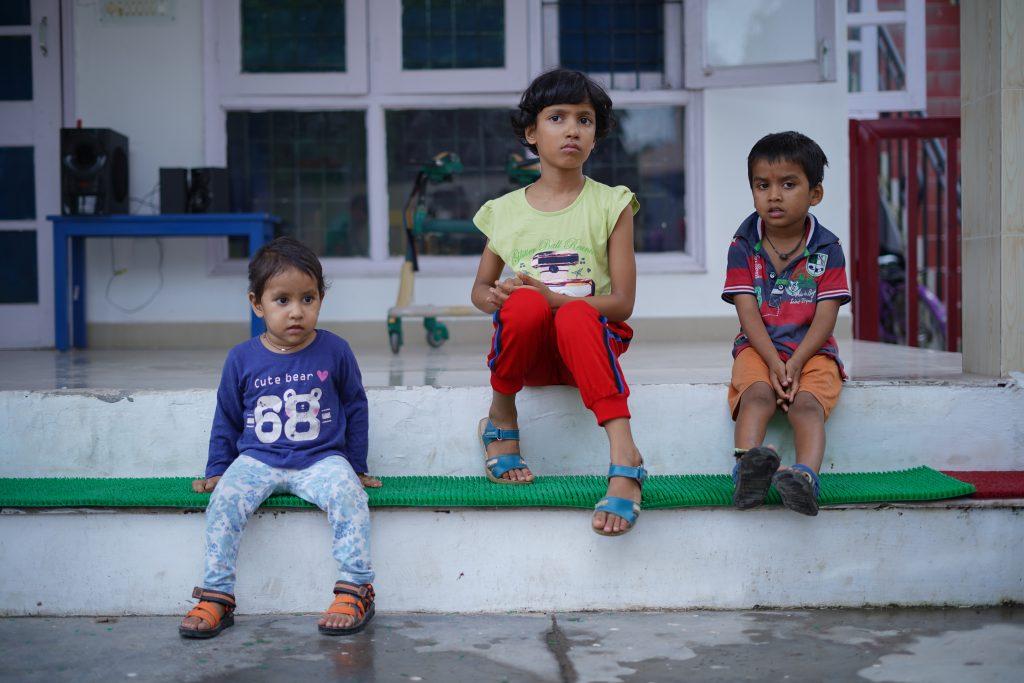
In a world set afire by Covid-19, April 2 remains World Autism Awareness Day. Another frontline to worry about in times of health, economic and social crisis: the more than a billion people worldwide who have disabilities. While adults with disabilities sometimes have a voice and a platform to fight for what is rightfully theirs, very little attention is being paid to children with disabilities, particularly those with Autism Spectrum Disorder (ASD). In the current global fire, we should not allow the blaze to consume the vulnerable. Instead, we should try to capitalize on the warmth of the fire to steer systems to prioritize inclusivity from the start. This article seeks to understand better how children on the autistic spectrum are affected by the changes that are occurring all around us in COVID-19 times.
“Autists are the ultimate square pegs, and the problem with pounding a square peg into a round hole is not that the hammering is hard work. It’s that you’re destroying the peg.” ― Paul Collins
Children with Autism Spectrum Disorder (ASD), their parents, caregivers and families are distraught over the current lockdown days, with their usual challenges magnified many times over. One glaring recent example came from India recently, when the whole country created a deafening racket (seen by most, rightfully, as an expression of solidarity and gratitude towards frontline health workers in the context of COVID-19). While well-intentioned in nature, that commotion must have scared and triggered so many children with sensory challenges.
Autism Spectrum Disorder can cause significant social, communication and behavioural challenges, and children with ASD usually learn, think, function and problem-solve differently from most other people – their abilities can range from gifted to severely challenged. Some of them need a lot of help in their daily lives; others, less. The idea of neurodiversity – whereby persons with autism are considered a variation of the natural, normal variation of the genome, is also gaining momentum, especially in the west.
Worldwide, the prevalence of ASD is now about 1 in 68 children. In India, we don’t have exact numbers, but it is thought to be around the same.
More people than ever are being diagnosed with ASD all over the world, and particularly in Asia, including India. Although no single cause has been identified and there is no formal cure for ASD, early diagnosis is key to improved outcomes. Tracking rates and numbers is challenging- there’s a lack of specific, uniform criteria, as well as paucity in resources to conduct assessments; also, report statistics may not be a national health priority. There is still lots of emerging knowledge in low and middle-income countries.
On the positive side, evidence-based psychosocial interventions and parent skill training programs are known to have an impact on the wellbeing and quality of life for persons with ASD and their caregivers. Specific family-centric interventions need to be accompanied by broad actions including accessible physical, social and attitudinal spaces to promote acceptance and inclusion. These become all the more necessary in present times with lockdowns, isolation and quarantine.
Many of us will continue to grapple with resource constrained settings, lack of governance, clashing agendas and deficient sensitivity to our cause- however, giving up is not an option, not anymore. Each of us may not be able to change the world for all the one billion people with disabilities. But in our own ecosystems, in our own niches, we can aim for inclusiveness, fairness in policy & practice and realisation of the rights of children with disabilities, including children with ASD.
In the present times, in the thick of COVID-19, the public health care system will have to shoulder a huge responsibility, all the while, including for those with different abilities and needs. This is the way forward, according to many disability advocates around the world. It’s also important to connect with experts in the field and make their recommendations accessible and available.
There are many questions to consider in these times. How do we manage social distancing between parents and children? How do we ensure hand washing to children who cannot handle water in the first place? How can we continue to feed children the specific foods they are used to when they are not available anymore? What if their therapists can’t meet them anymore for a while? How can children with disabilities and complex needs continue their learning at home as schools remain closed?
According to the UK National Health Service (NHS) national guidelines, children with ASD will have the same illnesses as other children, but the way they respond to or communicate their symptoms will be different, and may not be obvious. Paying attention to health passports, listening to parents and caregivers, clear simple communication, providing quiet spaces and understanding behavioural responses will help children with ASD who may need assistance in hospitals. It is as important to contain the infection in vulnerable populations, including children with ASD, as it is in the general populations. The following recommendations from a health systems perspective could support policy making and key implementations.
Recommendations from a health systems perspective
Awareness & Acceptance will be key to the success of initiatives- despite the progress in research and public initiatives, there continues to be stigma and discrimination against children with disabilities, particularly those with autism, since many of them have challenges with behaviour and communication.
There is a need for aggressive national guidance by experts in the field of disability. A review of the disability rights framework and inclusion of relevant, key messages (accessible educational materials, qualified sign language communication, accessible websites, financial benefits for families/ caregivers, permission of care givers to continue services with special precautions, special access to out-patient care, quiet zones for in-patient care, etc.) in the national COVID-19 policy are essential, so that inclusivity is built in from the beginning, not as an afterthought. Service delivery is vital- continued access to essential and support services is key for children with disabilities and their families, whose caring responsibilities will be magnified in crisis situations. Online schooling should be made accessible for children with disabilities, so they can continue lesson plans.
While India is yet to initiate nationwide collaborative efforts towards inclusion, organisations that work with and support children with disabilities are responding with support for families through phone calls, videoconferencing and provision of food and essentials for some. Advocacy needs to go from paper to practice, our work has to change laws around disability rights and we have to pave the way forward, for everyone should get a chance to live to their full potential and have a place at the table.
A pandemic magnifies existent inequities and further jeopardizes inclusion for people with disabilities. If you are inspired by this call for inclusiveness, equity, justice and courage and want to make the world a better place for everyone, then fight for disability justice in any way you can. Also, there is no USA, UK, Taiwan, China, Singapore, Nigeria, India or Mexico when it comes to children with disabilities- children with ASD are the same, the world over.
You can choose your own road map to build a just and inclusive world. A good start might be Judy Heumann’s “Being Heumann: An Unrepentant Memoir of a Disability Rights Activist”? or Crip Camp on Netflix.
We can’t afford children with ASD to be left behind, in Covid-19 times even less so.
